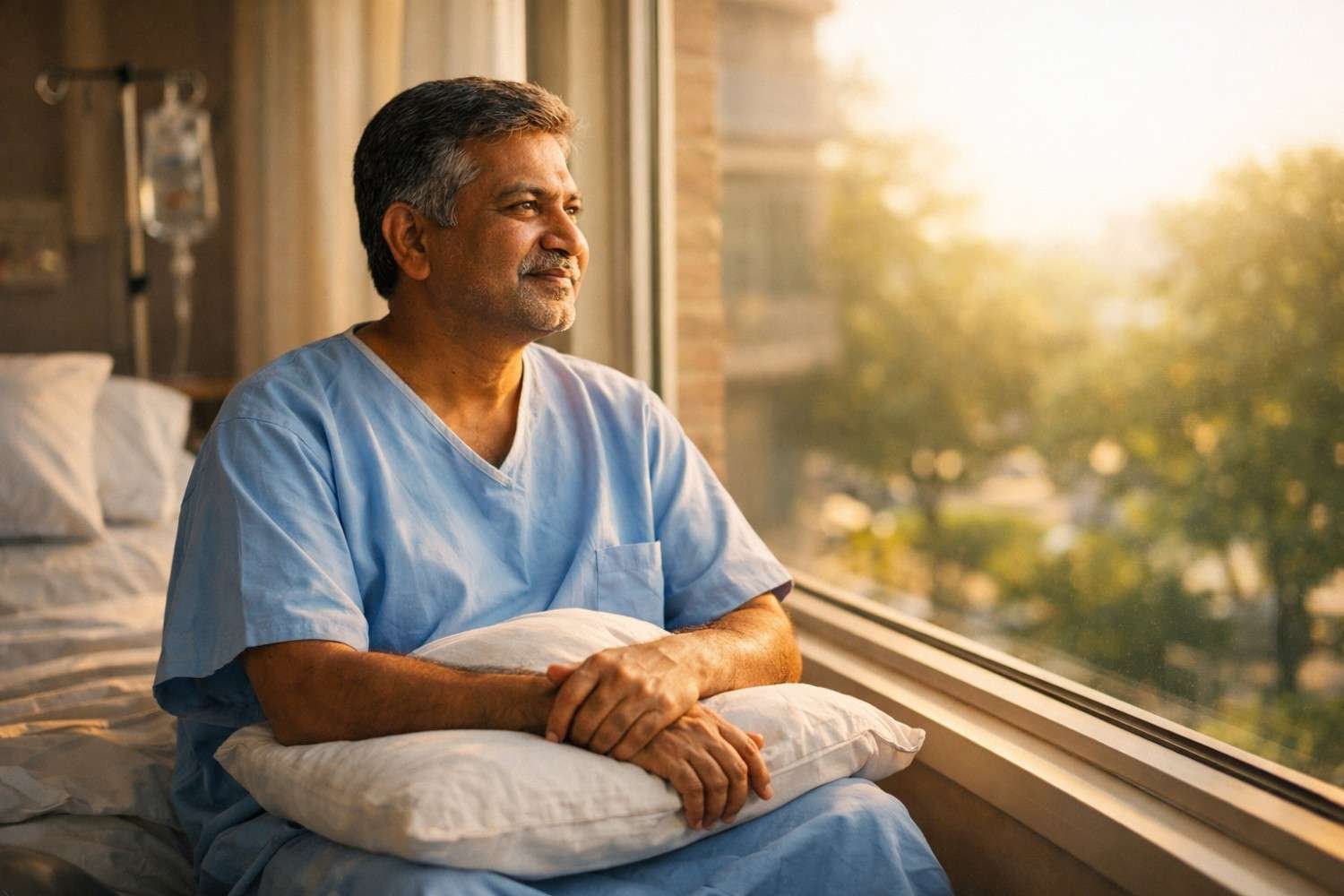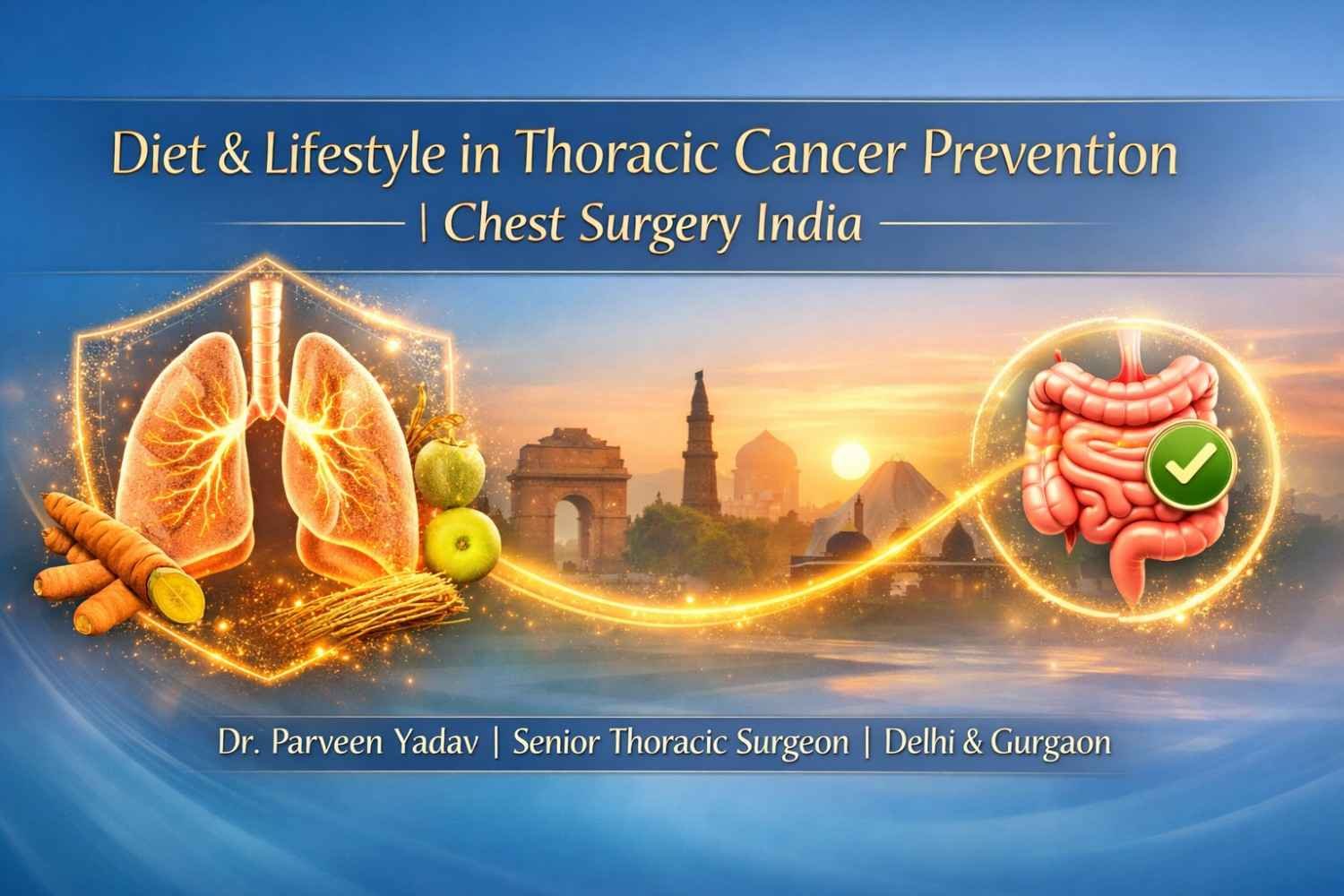

In recent years, Esophageal cancer has emerged as a significant health concern, prompting researchers and medical professionals to delve into innovative approaches for diagnosis, treatment, and prevention. This detailed blog post will delve into the latest advancements in the field, shedding light on groundbreaking research and development. Also, read our previous blog on Living with Esophageal Cancer.
This malignant condition affects the esophagus, the tube connecting the throat to the stomach. Known for its aggressive nature, early detection and continuous research are essential in improving patient outcomes.
One of the critical focuses of recent research is the development of advanced early detection methods. Techniques such as endoscopic ultrasound, molecular imaging, and biomarker identification pave the way for more accurate and timely diagnoses. Dr. Parveen Yadav, a renowned figure in the field, has been instrumental in driving forward these diagnostic innovations.
Genomic studies have opened new avenues for understanding the genetic basis of esophageal cancer. This research allows for a personalized approach to treatment, tailoring interventions based on an individual's genetic makeup. As a result, patients may experience more effective and targeted therapies, minimizing side effects.
Immunotherapy has revolutionized cancer treatment, and esophageal cancer is no exception. Recent breakthroughs in immunotherapeutic approaches have shown promising results in enhancing the body's natural defences against cancer cells. These innovations are reshaping the landscape of esophagus cancer treatment options.
Dr. Parveen Yadav, a leading figure in chest surgery, has contributed significantly to developing innovative surgical techniques for esophageal cancer. Minimally invasive procedures, robotic-assisted surgeries, and precision-guided interventions are changing how patients undergo treatment, improving recovery times and overall outcomes.
Finally, esophageal cancer research is witnessing unprecedented advancements, from early detection methods to groundbreaking treatment options. Dr. Parveen Yadav's contributions to innovative surgical techniques underscore the collaborative effort within the medical community to improve patient outcomes.
Chest Surgery India, where Dr. Parveen Yadav practices, is a beacon of hope for those affected by esophageal cancer. As research continues to evolve, it is evident that integrating cutting-edge technologies and personalized approaches will shape the future of esophageal cancer management.
1. What are the common risk factors?
Answer: Risk factors include smoking, excessive alcohol intake, obesity, and certain medical conditions such as Barrett's esophagus.
2. How it is diagnosed?
Answer: Diagnostic methods include endoscopy, biopsy, imaging tests, and advanced techniques like ultrasound.
3. Can it be prevented?
Answer: While some risk factors cannot be avoided, adopting a healthy lifestyle, avoiding smoking and excessive alcohol, and managing conditions such as acid reflux can contribute to prevention.
4. What role does genetics play in this cancer?
Answer: Genetic factors can increase susceptibility, and ongoing genomic studies aim to identify specific gene mutations associated with esophageal cancer.
5. How has immunotherapy changed the landscape of esophageal cancer treatment?
Answer: Immunotherapy stimulates the immune system to target and destroy cancer cells, offering a promising alternative or complement to traditional treatments like chemotherapy and radiation.

18+ Yrs Exp | 5,700+ Thoracic & Robotic Cancer Surgeries
Dr. Parveen Yadav is a Director and Senior Consultant in Thoracic and Surgical Oncology, specializing in minimally invasive and robotic lung and esophageal surgeries, with advanced training from AIIMS and Tata Memorial Hospital.
View Full Profile Pain After Thoracic Surgery: Tips for Smooth Recovery
Pain After Thoracic Surgery: Tips for Smooth Recovery
 Diet & Lifestyle for Thoracic Cancer Prevention | Dr. Parveen Yadav
Diet & Lifestyle for Thoracic Cancer Prevention | Dr. Parveen Yadav
 Robotic Thoracic Surgery: How Da Vinci Technology is Revolutionizing Chest Procedures
Robotic Thoracic Surgery: How Da Vinci Technology is Revolutionizing Chest Procedures
Struggling with pain after chest surgery? Dr. Parveen Yadav shares expert recovery tips, causes of shoulder pain, PTPS signs, and what your discharge sheet won't tell you.
Discover how diet, breathing exercises & daily habits help prevent and recover from thoracic cancer. Expert insights from Dr. Parveen Yadav, Chest Surgery India
Discover how Da Vinci robotic surgery is transforming chest procedures in Gurgaon. Less pain, faster recovery & expert care by a certified thoracic surgeon
Copyright 2026 © Dr .Parveen Yadav all rights reserved.
Proudly Scaled by Public Media Solution!